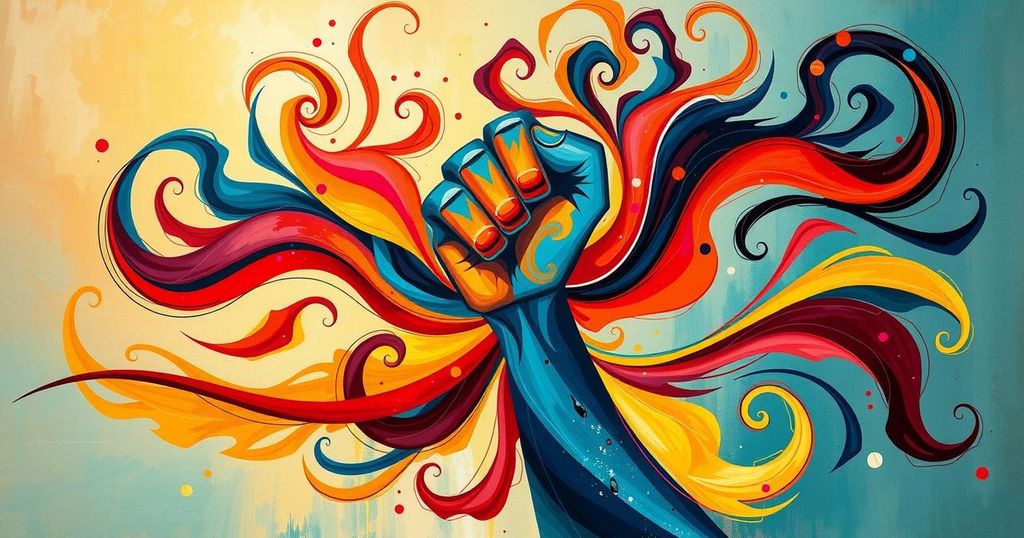June 12, 1993, was a crucial date in Nigeria’s democratic history, as more than 14 million citizens voted to elect Chief MKO Abiola as president, signaling a united front against military tyranny. The election was marked by widespread approval from observers, yet it was annulled by the military regime, leading to a dark era of oppression. This struggle rallied diverse groups for democracy, highlighting the sacrifices made by many citizens. Today, with greater political freedom, there is a pressing need for collective reflection on this history to ensure future generations grasp its importance.
June 12 marks a pivotal moment in Nigeria’s history. Specifically, June 12, 1993, stands out as a day when more than 14.29 million Nigerians exercised their right to vote in a presidential election, signifying a collective rejection of military tyranny. Voters overwhelmingly selected Chief MKO Abiola of the Social Democratic Party over Alhaji Bashir Tofa of the National Republican Convention, an act driven by a shared longing for democracy. This was a landmark decision, transcending religious and ethnic divides to assert the people’s desire for freedom and progress.
The election boasted an impressive presence of observers—about 3,000 including 135 international monitors from various developed countries—who deemed the election credible and well-conducted. Unlike its predecessors—specifically the flawed elections of 1979 and 1983—the 1993 election was viewed as free and fair. The observers’ consensus underscored a significant moment, a point in time where the electorate’s voice was vital, especially amidst a national crisis.
Yet, the anticipated transition of power was short-lived. General Ibrahim Badamosi Babangida’s Federal Military Government inexplicably annulled the election results, undermining the will of the people. This led to the installation of the Interim National Government, which many deemed illegitimate, and the appointment of General Sani Abacha. Such decisions marked a descent into a brutal era of dictatorship that cast a long shadow over Nigeria.
Despite this discouragement, the spirit of June 12 ignited resilience among Nigerians. Activism surged among various groups, including labor unions, students, and civic organizations, all rallying against what was seen as an oppressive regime. The formation of the National Democratic Coalition brought together diverse factions united in the fight for democracy, casting aside regional and ethnic affiliations to reclaim a collective national identity.
This struggle saw prominent figures rise to the forefront—fighters for democracy who either paid the ultimate price or continued to advocate for justice and freedom despite the threat of violence. Among them were veterans like Pa Anthony Enahoro and Chief Bola Ige, who faced jail and assassinations while championing democracy.
Others, like Senator Bola Tinubu and Prof. Wole Soyinka, have remained key players in Nigeria’s political landscape post-struggle. Their memories and sacrifices remain etched in the hearts of a nation that now faces complex challenges around political engagement and civil liberty. The struggle, however, was not without bloodshed; many activists were persecuted or killed. Significant casualties included Alhaja Kudirat Abiola and Pa Alfred Rewane, both of whom became martyrs in this critical fight.
The media also faced dire consequences during this period, with journalists like Dare Babarinsa and Chris Anyanwu subjected to intimidation and harassment for exposing the regime’s brutality. Their bravery chronicled the agony experienced by countless Nigerians and expanded the narrative of June 12, reminding us of a time when speaking out meant risking everything.
As an attorney, I experienced the military junta’s oppression firsthand. I recall vividly how, as a young lawyer, I joined the fight to restore the June 12 electoral mandate—a challenge that involved significant personal risk, including threats to my safety. Such pivotal moments shaped not just my career but also my commitment to civil rights and justice in Nigeria.
Despite the tumult, hope emerged with the eventual fall of the military regime in 1998, culminating in a fragile yet hopeful return to democracy. However, the death of Chief MKO Abiola marked another tragedy, underscoring the persistent struggle for legitimacy and representation.
Today, our political landscape allows for greater participation and rights. Yet, the significance of June 12 seems to fade for many, particularly younger generations who weren’t there to witness these events firsthand. This lack of connection to our history raises concerns about the legacy of the sacrifices made for the freedoms that we enjoy today.
It is incumbent upon us as a nation to celebrate this day and reflect on the lessons of unity and resilience taught by the June 12 ethos. Building a functional democracy requires not only governmental commitment but active engagement from all citizens—especially opposition parties, who must present viable alternatives to existing governance.
In summary, June 12 represents a call to maintain the spirit of democracy that our predecessors fought so hard to secure. We must sustain the values of sacrifice, unity, and purpose that drove the fight for civil rights in Nigeria. The future relies on our capacity to uphold these ideals and foster an environment where every citizen’s voice matters in nation-building.
In conclusion, June 12 stands as a significant reminder of Nigeria’s tumultuous journey toward democracy. It reflects the sacrifices made by countless individuals who rallied together for freedom and justice. Today, with greater political participation, it is crucial we honor and understand this history amidst the challenges that remain. Moving forward, nurturing the spirit of June 12 will be essential to ensuring a bright future for the nation, as collective unity against oppression remains vital for democracy. The responsibility falls on each member of society to engage actively in preserving these values for subsequent generations.
Original Source: punchng.com






